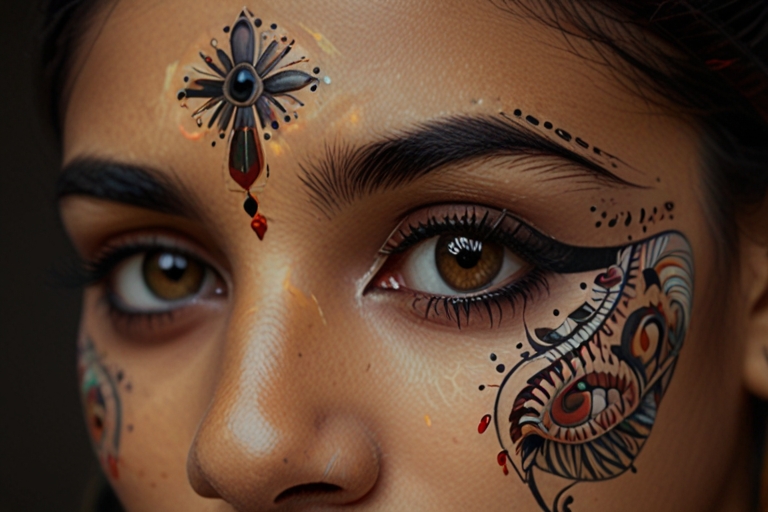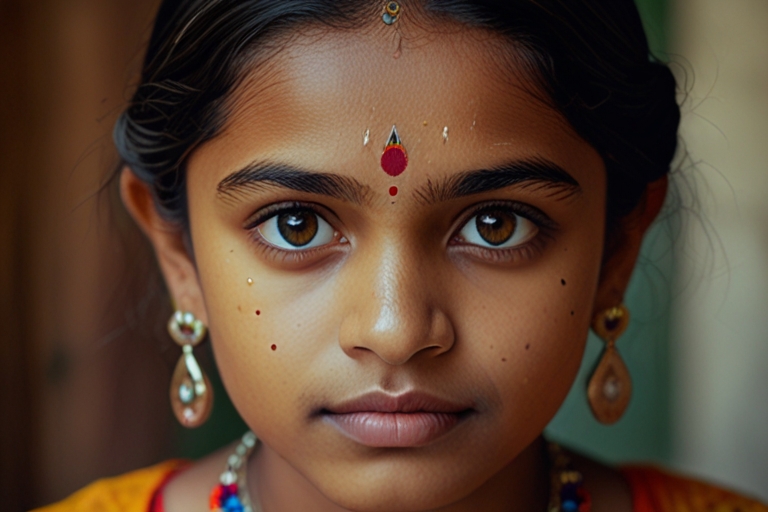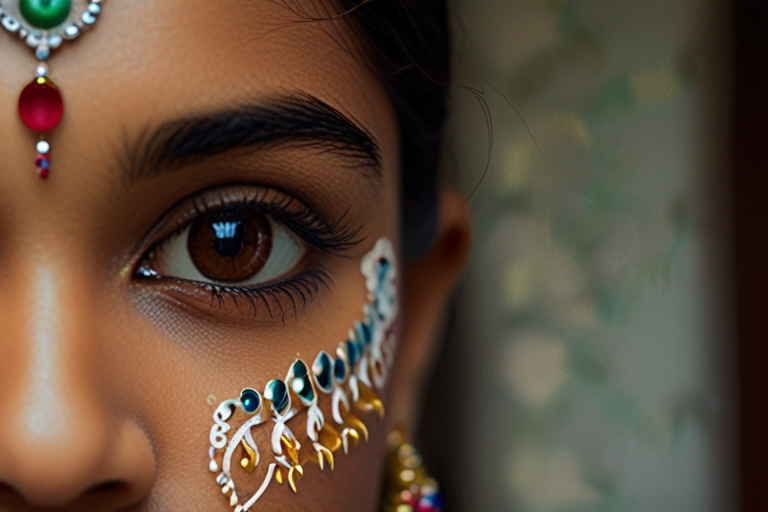Makeup artistry in Mumbai is a vibrant and dynamic field, reflecting the city’s status as the heart of India’s Bollywood industry and its cosmopolitan spirit. Known for its fast-paced lifestyle and diverse culture, Mumbai is a hub for fashion and beauty, making it an ideal place for makeup artists to thrive.
The city’s makeup industry is characterized by a blend of traditional Indian beauty aesthetics and modern, global trends. Mumbai’s makeup artists are renowned for their ability to create looks that range from the classic and elegant to the bold and avant-garde. They cater to a wide array of clients, including brides, models, actors, and individuals looking to enhance their appearance for special occasions.
Education and training in makeup artistry are taken seriously in Mumbai. The city boasts several prestigious academies and schools where aspiring makeup artists can hone their skills. These institutions offer comprehensive courses that cover various aspects of makeup, including bridal, airbrush, fashion, films, and special effects. Students learn from experienced professionals who have worked in the industry for years, gaining insights into the latest techniques and trends.
One of the unique offerings in Mumbai’s makeup education is the focus on hands-on experience. Students often have the opportunity to work on real projects, participate in events, and assist in photoshoots and film productions. This practical approach ensures that graduates are well-prepared to enter the workforce with confidence and a robust portfolio.
The makeup industry in Mumbai is not just about the glitz and glamour; it’s also a testament to the entrepreneurial spirit of the artists. Many makeup professionals in the city have established their own studios and brands, contributing to the economy and setting new standards in the beauty sector. They also collaborate with fashion designers, photographers, and other creatives, further enriching Mumbai’s artistic landscape.
Moreover, Mumbai’s makeup artists are increasingly conscious of the importance of sustainability and ethical practices. They are embracing cruelty-free products and eco-friendly techniques, aligning with the global movement towards responsible beauty.
In conclusion, makeup artistry in Mumbai is a flourishing profession that offers endless opportunities for creative expression and career growth. It is a field that not only celebrates beauty in its many forms but also encourages innovation, learning, and collaboration among artists. Whether you’re an aspiring makeup artist or someone who appreciates the transformative power of makeup, Mumbai’s beauty scene is sure to inspire and captivate.
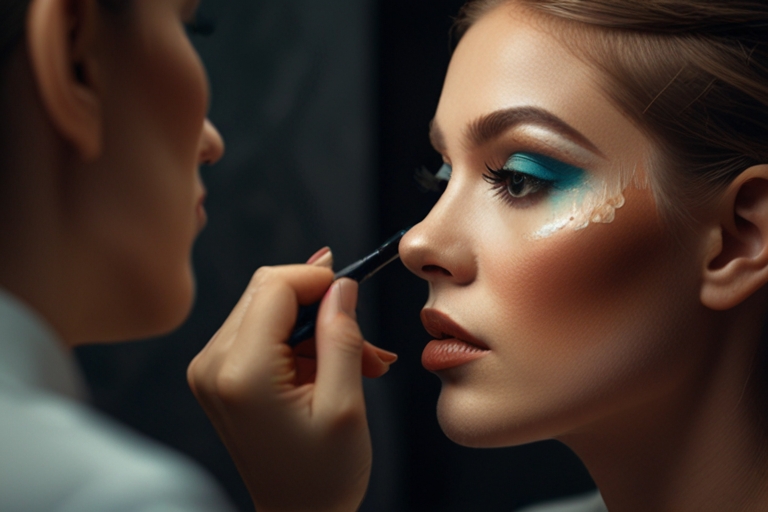
Pros And Cons of Makeup Artistry
Diverse Opportunities:- Mumbai’s bustling Bollywood and fashion industries provide ample opportunities for makeup artists to work in various settings, from movie sets to fashion shows.
Creative Expression:- Artists can unleash their creativity, crafting everything from avant-garde looks to timeless beauty.
Learning and Growth:- With numerous makeup academies, artists can continually upgrade their skills and stay abreast of the latest trends.
Networking:- The city’s vast entertainment industry allows for networking with professionals, potentially leading to lucrative collaborations.
Cultural Melting Pot:- Mumbai’s diverse population means makeup artists can work with a wide range of skin tones and features, enhancing their versatility.
Competition:- The presence of many talented artists means stiff competition, making it crucial to stand out.
Cost of Living:- Mumbai’s high cost of living can be a challenge, especially for those starting out or working freelance.
Irregular Hours:- Assignments can come with unpredictable schedules, often requiring work on weekends or late hours.
Initial Investment:- Building a professional makeup kit and portfolio requires a significant initial investment.
Client Expectations:- Managing client expectations can be demanding, as clients may have specific and sometimes challenging requests.
Why Choosing Course
1.Industry Exposure:- Mumbai, the heart of Bollywood, offers unparalleled exposure to the entertainment and fashion industries. Aspiring makeup artists can learn from working professionals and gain insights into the latest trends and techniques.
2.Professional Training:- Courses in Mumbai are comprehensive, covering everything from basic makeup application to advanced prosthetics and special effects. This ensures that students are well-equipped to handle a variety of makeup challenges.
3.Networking Opportunities:-Studying in Mumbai allows students to build connections with industry professionals, including those who have worked with celebrities, which can be invaluable for future career opportunities.
4.Cultural Diversity:- Mumbai’s diverse population means makeup artists must learn to cater to a wide range of beauty standards and preferences, making them more versatile and adaptable.
Career Prospects:- With the city’s thriving beauty scene, there are numerous opportunities for makeup artists to work in salons, film sets, fashion shows, or even start their own freelance business.
In essence, a Makeup Artistry course in Mumbai not only equips students with the necessary skills but also provides a gateway to the vibrant world of beauty and glamour.
Tools that needs to be learned for best makeup artist in india
in India, aspiring makeup artists need to become proficient with a variety of tools to excel in the field. Here’s a list of essential tools and products that are commonly taught in makeup artistry courses:
Basic Tools
1.Brushes:- A comprehensive set of brushes for foundation, powder, blush, eyeshadow, eyeliner, and lips.
2.Sponges and Blenders:- For applying and blending foundation, concealer, and other cream-based products.
3.Tweezers and Scissors:- For eyebrow shaping and false lash application.
Complexion Products:
1.Primers:- To prepare the skin for makeup application.
2.Foundations:- A range of shades for different skin tones.
3.Concealers:- For covering blemishes and under-eye circles.
4.Powders:- Loose and pressed powders to set makeup.
Color Cosmetics:
1.Eyeshadows:- A palette with a variety of colors and finishes.
2.Eyeliners:- Gel, liquid, and pencil liners.
3.Mascaras:- For lengthening and volumizing lashes.
4.Lipsticks and Lip Liners:- In various shades and finishes.
5.Blushes and Bronzers:- To add color and contour to the face.
COMPANIES THAT HIRE
Beauty and Cosmetics Brands: Companies like MAC Cosmetics, Sephora, L’Oréal, Estée Lauder, and others hire makeup artists as brand representatives, trainers, or for promotional events.
Salons and Spas: Local or chain salons and spas hire makeup artists to offer services to their clients. Examples include Toni & Guy, Lakmé Salon, Jean-Claude Biguine, and many others.
Fashion Industry: Fashion houses, modeling agencies, and designers hire makeup artists for runway shows, fashion shoots, and editorial work. Companies like Vogue, Elle, and Harper’s Bazaar might employ makeup artists for editorial purposes.
Film, Television, and Theater: Production companies, TV channels, theaters, and film studios hire makeup artists for various roles, including creating character looks, special effects makeup, and general makeup for actors.
Wedding Planning and Event Management Companies: These companies often have a team of
Freelancing and Self-Employment: Many makeup artists choose to work independently, offering their services for weddings, events, photo shoots, and personal appointments. This allows them to work with various clients and build their own brand.
Beauty Schools and Academies: Some makeup artists become educators or trainers at beauty schools and academies, passing on their expertise to aspiring artists.
Medical and Cosmetic Clinics: Dermatologists, plastic surgeons, and cosmetic clinics might hire makeup artists to assist with post-surgery or medical makeup application for patients.
Cruise Ships, Resorts, and Hotels: Some luxury resorts, hotels, and cruise liners employ makeup artists to offer beauty services to guests.
Corporate Events and Entertainment Industry: Companies organizing events, conferences, or entertainment programs often hire makeup artists for their performers, hosts, or participants.
Book’s To Read
Making Faces by Kevyn Aucoin
A classic that explores the transformative power of makeup. Kevyn Aucoin shares his expertise and showcases iconic looks he created for celebrities and models.
Make-Up Masterclass by Jemma Kidd
Jemma Kidd provides practical advice and step-by-step tutorials for achieving professional makeup looks.
Makeup Manual by Bobbi Brown
This book distills Bobbi Brown’s extensive experience into one complete guide. It covers everything from basic beauty equipment and skincare to the business of makeup and professional artistry.
The Makeup Artist Handbook
This comprehensive guide covers everything from hygiene and sanitation practices to working on film sets.
The Beauty of Color: The Ultimate Beauty Guide for Skin of Color by Iman:
Specifically focused on makeup for diverse skin tones, this book provides essential tips and techniques for artists working with clients of all backgrounds.
Makeup Your Mind: Express Yourself by François Nars
François Nars, the founder of NARS Cosmetics, shares his artistic vision and encourages self-expression through makeup.
Top 10 Place in Mumbai For Makeup Artistry Courses
IIT Bombay (Indian Institute of Technology)
Known for its excellence in engineering and technology, IIT Bombay offers various undergraduate and postgraduate courses. The B.Tech in Computer Science Engineering program is highly regarded.
SP Jain Institute of Management and Research
SPJIMR offers a PGDM program with a strong focus on management education. It consistently ranks among the top business schools in India.
BHI-Makeup Academy
BHI (Bollywood, Hollywood, and International) Makeup Academy is renowned for its high-quality makeup courses. They focus on providing fundamental and basic makeup training, guided by international makeup artists from the USA, Europe, and Australia. The duration of their course is 6 months, and the fee is around ₹2,12,400.
VLCC Institute
VLCC Institute is one of the largest institutes in Mumbai, with nearly 95 branches across India. They provide comprehensive makeup courses and also offer solutions for skin problems, beauty treatments, and weight management. Their makeup course duration is 6 weeks, and the fee is approximately ₹50,000.
Lakme Academy
Lakme Academy is a well-known training institute that empowers aspiring makeup artists. Their makeup artists have worked with Bollywood actors and actresses. The courses offered include nail art, extensions, makeup, and hairstyling. The duration of their makeup course is 2 months, and the fee is approximately ₹40,000.
Bombay School of Makeup and Hair
BSMH is India’s leading makeup academy, offering courses for aspiring makeup and hair artists. They provide specialized training for bridal, fashion, and Bollywood makeup, including advance prosthetic makeup. Their 2-month makeup course costs around ₹1,50,000.
CERTIFICATIONS AVAILABLE
1.Certificate/Diploma Courses:These foundational courses are a great starting point for aspiring makeup artists. They cover essential skills, such as makeup application techniques, color theory, and hygiene practices. Depending on the program, students may learn about skincare, face shapes, and product knowledge. These courses are typically shorter in duration and provide a basic understanding of makeup artistry.
2.Professional Makeup Artist Certification: Institutes offering professional certifications often provide comprehensive programs. These programs delve into various aspects of makeup artistry, including bridal makeup, editorial looks, and special effects. Students learn about client consultations, sanitation, and business practices. Upon completion, graduates receive a recognized certification, which can enhance their credibility in the industry.
3.Specialized Certifications:
These certifications focus on specific niches within makeup artistry. For example:
*Bridal Makeup Certification:Teaches techniques for creating flawless bridal looks, understanding different cultural preferences, and managing bridal clients.
* Fashion Editorial Makeup Certification: Covers high-fashion and runway makeup, creative looks, and collaboration with photographers and designers.
* Special Effects Makeup Certification:Explores prosthetics, aging, wounds, and fantasy makeup for film, theater, and events.
* Airbrush Makeup Certification:Trains artists in airbrush techniques for flawless, long-lasting makeup.
*Theatrical Makeup Certification: Focuses on stage makeup, character transformation, and storytelling through makeup.
4. Manufacturer-Sponsored Certifications: Some cosmetic brands offer training programs for their products. Artists learn about the brand’s philosophy, product range, and application techniques. These certifications can be valuable when working with specific brands or products.
5.Online Makeup Courses: Online platforms provide flexibility for learning. Students can access theory modules, video tutorials, and practical assignments. While online courses may not always carry the same weight as in-person certifications, they offer convenience and knowledge. Look for reputable platforms with experienced instructors.
6.Advanced Masterclasses and Workshops: These are excellent opportunities for continuous learning. Industry experts conduct masterclasses on advanced techniques, trends, and business strategies. Although they may not issue formal certifications, attending workshops can elevate your skills and keep you updated.
7.Industry Association Memberships:Joining professional associations (such as the International Make-Up Association or local beauty organizations) connects you with fellow artists, industry events, and workshops. Some associations offer certifications or recognition based on participation and contributions.
Remember that building a successful makeup career involves a combination of education, practice, networking, and passion. Whether you choose formal certifications or informal learning experiences, your dedication and creativity will set you apart as a makeup artist!
SALARY PACKAGES
Entry-level positions:After completing a makeup artist course, beginners can start freelance work assisting experienced artists or work in entry-level positions at salons and beauty retailers. For such positions, annual salaries can range from 1,100,000 INR to 2,900,000 INR annually, depending on location and experience.
Experienced Freelancers:As makeup artists gain experience and build a client base, their earnings tend to increase. Freelancers can earn significantly more, from 2,900,000 INR to over 7,300,000 INR per year, especially in fields with high demand and affluent clients. Specialty: Makeup artists who work in specialized fields such as fashion, film, and television may earn different amounts. People in the fashion industry and those who work with celebrities can charge higher fees for each job or project, resulting in higher annual incomes.
Salon or Spa Positions:Artists employed by salons, spas, or beauty businesses may receive commissions or bonuses in addition to their base salary based on the services provided. Salaries for such positions vary widely, but often range from 1,500,000 INR to 4,400,000 INR per year, depending on the location and reputation of the establishment, and may also include commissions or bonuses. Career growth and business ownership: Some makeup artists grow by becoming salon managers and instructors, or by starting their own makeup studio or brand.
Entry-level positions:After completing a makeup artist course, beginners can start freelance work assisting experienced artists or work in entry-level positions at salons and beauty retailers. For such positions, annual salaries can range from 1,100,000 INR to 2,900,000 INR annually, depending on location and experience. Experienced Freelancers: As makeup artists gain experience and build a client base, their earnings tend to increase. Freelancers can earn significantly more, from 2,900,000 INR to over 7,300,000 INR per year, especially in fields with high demand and affluent clients. Specialty: Makeup artists who work in specialized fields such as fashion, film, and television may earn different amounts. People in the fashion industry and those who work with celebrities can charge higher fees for each job or project, resulting in higher annual incomes.
Salon or Spa Positions:Artists employed by salons, spas, or beauty businesses may receive commissions or bonuses in addition to their base salary based on the services provided. Salaries for such positions vary widely, but often range from 1,500,000 INR to 4,400,000 INR per year, depending on the location and reputation of the establishment, and may also include commissions or bonuses. Career growth and business ownership: Some makeup artists grow by becoming salon managers and instructors, or by starting their own makeup studio or brand.
Conclusion to your COURSE
Finally, enrolling in a makeup artist course opens doors to an enthralling world where passion, talent, and creativity come together. These classes are like doors opening into a world where brushes become artists, faces turn into canvases, and personal beauty is expressed.
With the help of these courses, aspiring makeup artists can develop their skills in a wide range of areas, from skincare and color theory basics to bridal, fashion, and special effects makeup techniques. Reputable schools provide their students with a dynamic curriculum that equips them not only with technical skills but also with the professionalism and business sense needed to succeed in the beauty industry.

1.Choose a Reputable Makeup Artist School:
While formal qualifications are not always necessary, enrolling in a reputable makeup artist school or training program can provide you with essential skills and knowledge.
- Look for programs that cover a wide range of makeup styles, skincare, color matching, and the latest trends and products.
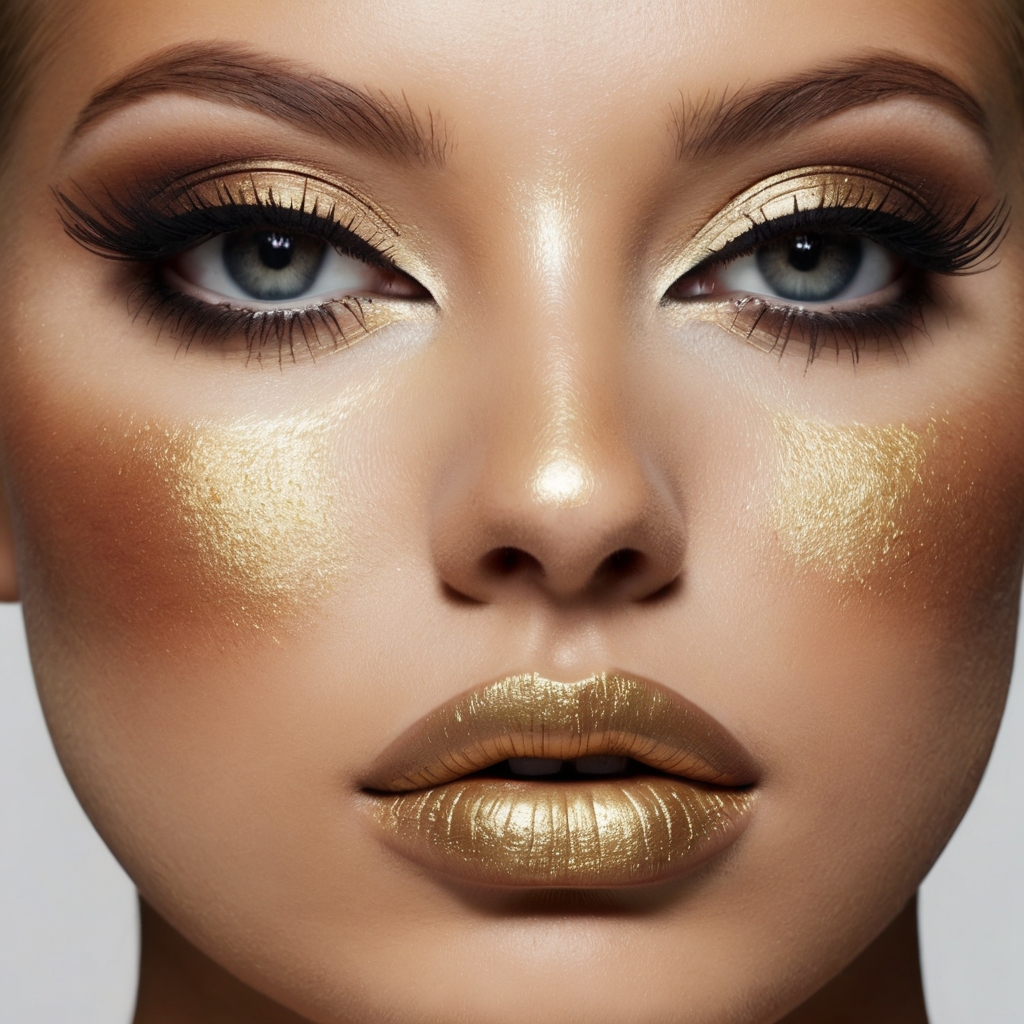
2.Complete a Makeup Artist Training Program:
Training programs can help you learn the basics of makeup application, color theory, and product choices.
- Consider courses that offer hands-on practice and guidance from experienced instructors.

3. Obtain a Makeup Artist License (if required):
Licensing requirements vary by location. Some states or countries may require you to obtain a makeup artist license.
- Research the specific requirements in your area and ensure you meet them.

4. Gain Practical Experience Through Internships and Apprenticeships:
Practical experience is crucial for building your skills and confidence.
- Seek internships or apprenticeships with established makeup artists, beauty salons, or production companies.

5. Build a Professional Portfolio:
Create a portfolio showcasing your best work. Include a variety of makeup looks, from natural to bold.
-
- High-quality photos of your work will impress potential clients and employers.
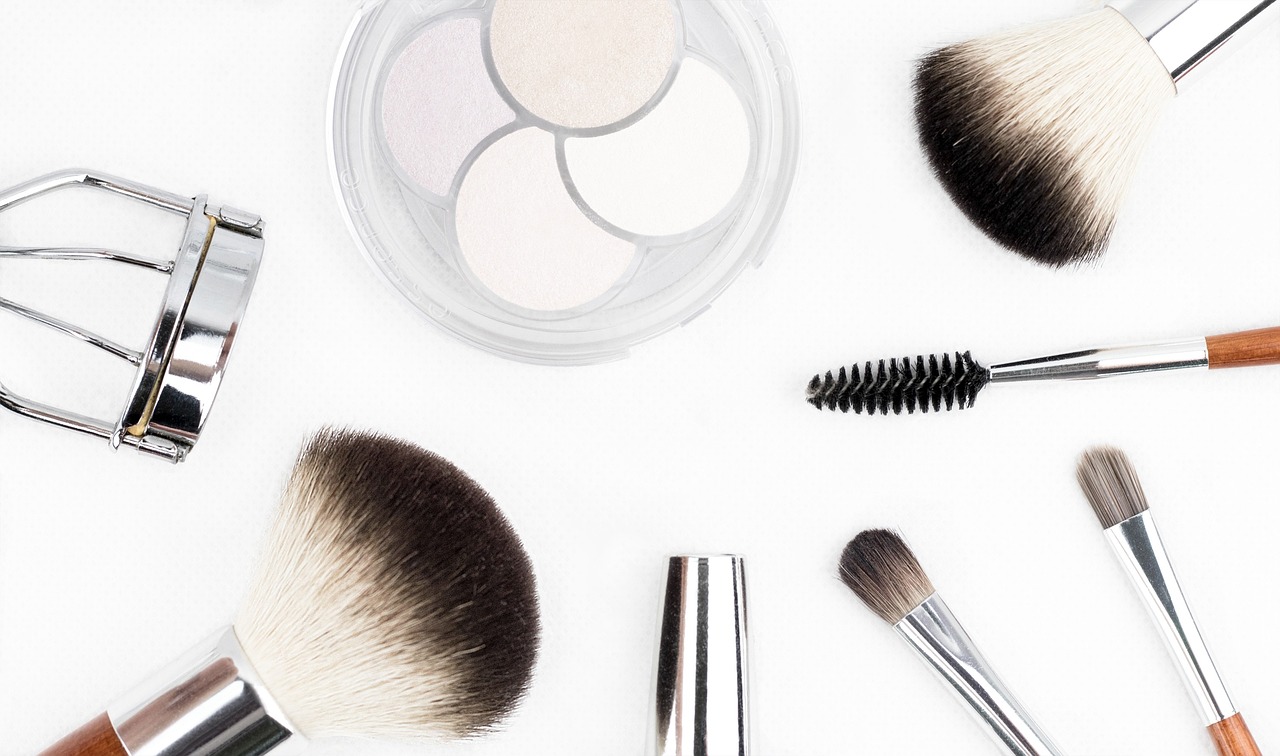
6. Develop a Strong Network and Personal Brand:
Attend industry events, workshops, and networking sessions to connect with other professionals.
-
- Build your personal brand by showcasing your unique style and approach.
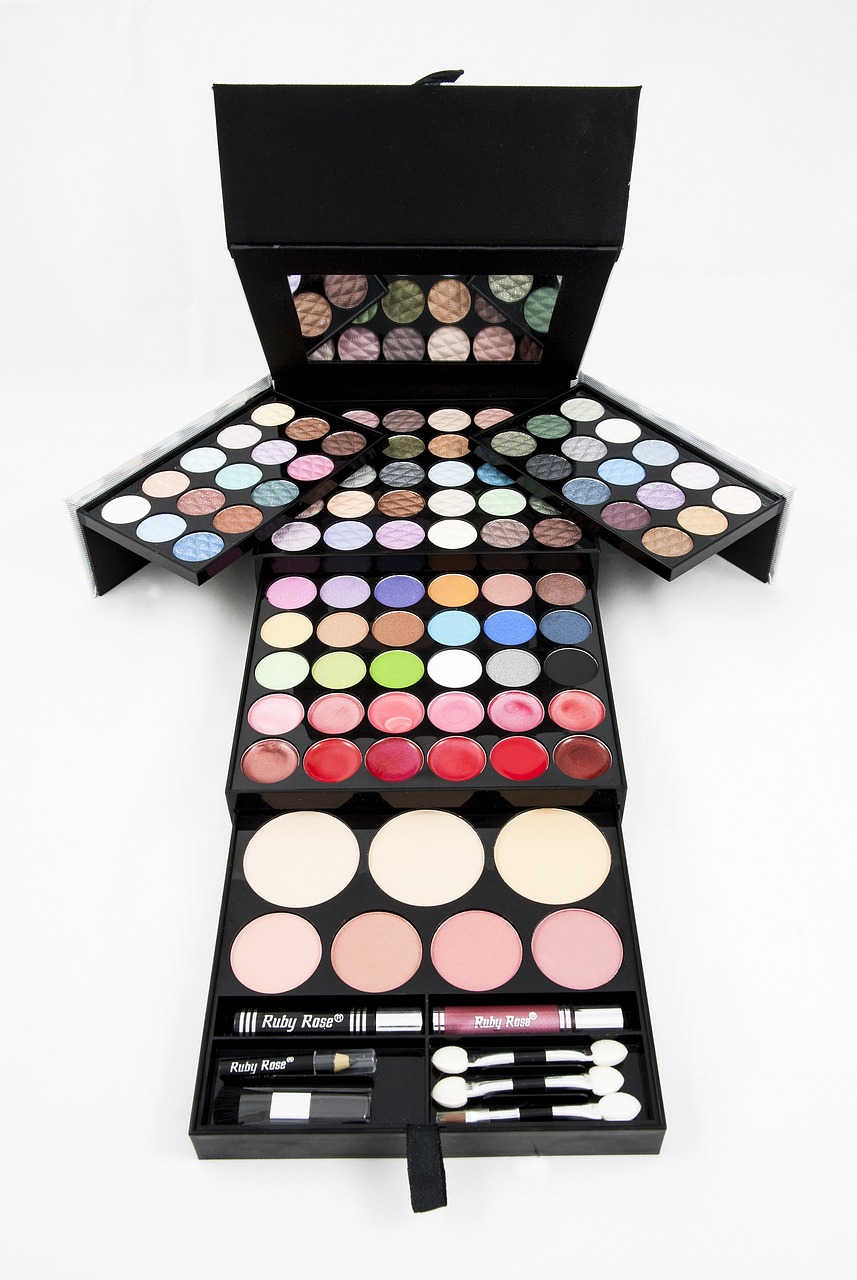
7. Seek Out Job Opportunities or Freelance Work:
Explore job opportunities with beauty salons, fashion shows, film and television productions, or bridal services.
-
- Freelancing allows you to work independently and build your own client base.
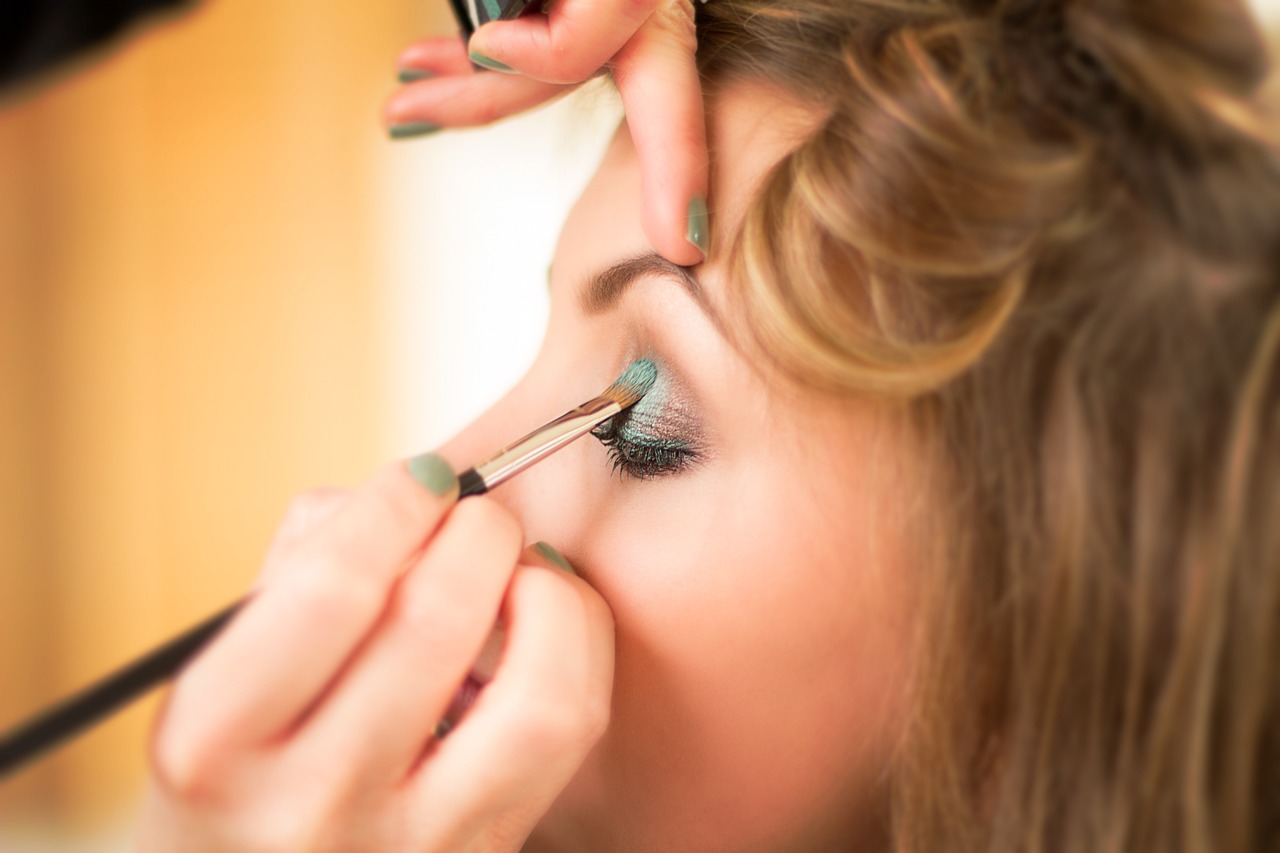
8. Continue Your Education and Stay Updated on Trends:
The makeup industry is ever-evolving. Stay informed about new products, techniques, and trends.
-
- Attend workshops, follow makeup artists on social media, and keep learning!

